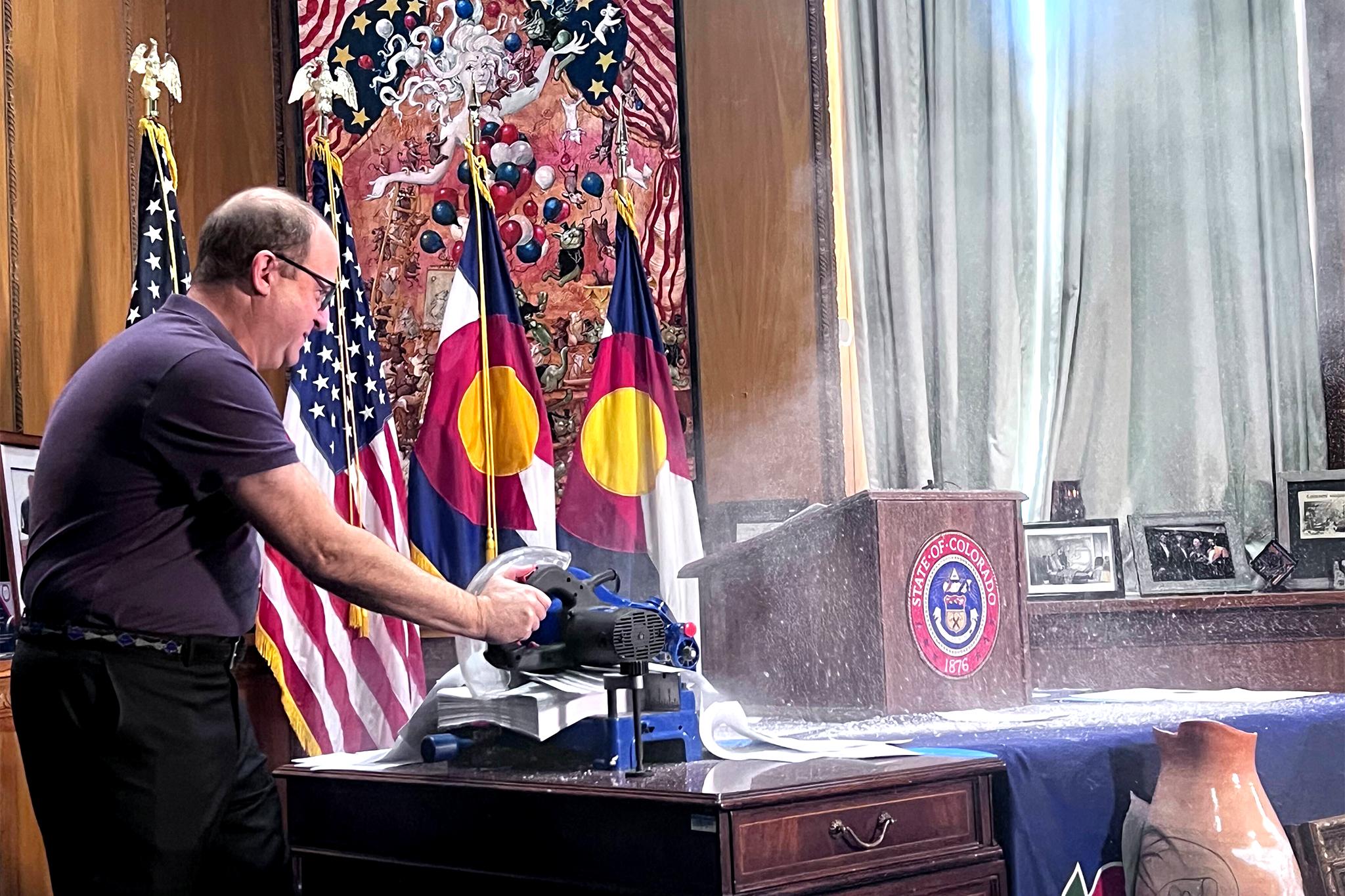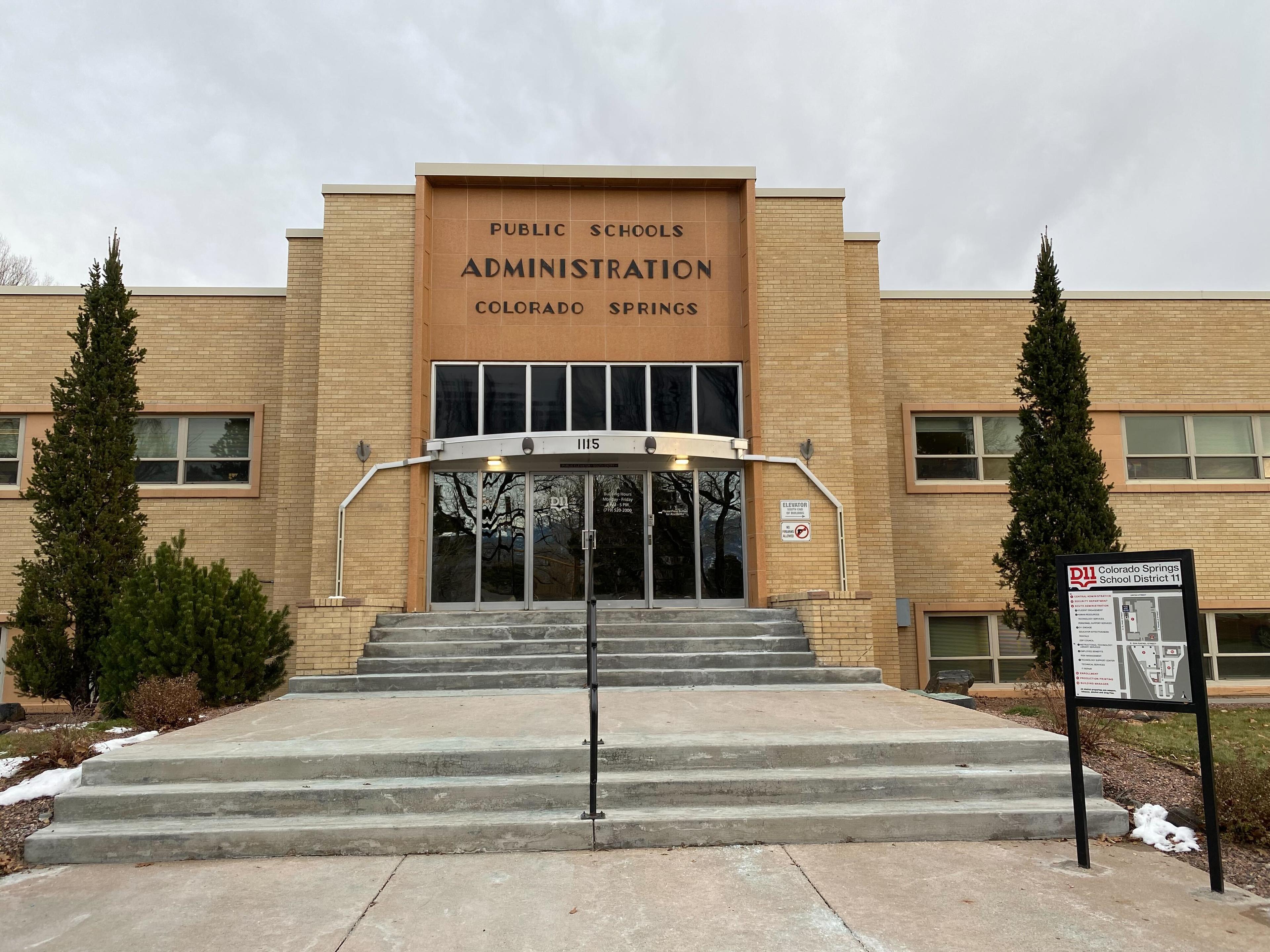
Thousands came to Civic Center Park Saturday in Denver to March for Science—one of 500 related events happening across the world. The peaceful gathering was meant to show support for fields like health care, chemistry, climate science and botany, and even included a brief protest by anti-fracking groups during a speech by Gov. John Hickenlooper.
The march snaked through downtown Denver, starting and ending in Civic Center Plaza. Some on hand were there to voice criticism of the Trump Administration’s policies. Others wanted an opportunity to move science out of labs and academia, and into public discourse.
“We’re literally drowning in our own jargon,” said Jennifer Ackerfield, Herbarium Collections Manager at Colorado State University. “We must not only communicate results with each other, but also in meaningful way for non-scientists to understand.”
Some participants also voiced concerns about potential cuts in federal funding for science and research. Colorado’s Front Range includes a high concentration of climate change researchers at institutions including the University of Colorado Boulder, the National Oceanic and Atmospheric Administration, and the National Center for Atmospheric Research. The Denver area also is also home to about two dozen federal research facilities and a regional Environmental Protection Agency office.
While this was a global event, “People [in Denver] have a sense of the outdoors, and that drives a desire to help the earth, which is also a big part of how science can impact,” said Adam Gianolla who marched with his wife Danielle and daughter Margo. “We think science funding is important. It should continue to be prioritized.”
Gianolla said he was most concerned about proposed cuts by President Trump to the Environmental Protection Agency. Preliminary budget proposals have outlined some reductions to the agency of up to 31 percent.

As NPR reported, the main event is happening in Washington, D.C., but satellite marches are planned in all 50 states, and at least 610 marches have been registered on the March for Science website across the world on all continents except Antarctica.
The gathering brought together a large collection of homemade signs, an inflatable torch, marching polar bears and an anti-fracking sign bomb. Protesters with dozens of signs swarmed in front of Gov. Hickenlooper while he addressed the crowd.
“Science says fracking kills,” chanted protesters over Hickenlooper’s speech.
“I appreciate free speech and speaking out,” said Hickenlooper, who largely soldiered through his remarks as the protesters shouted and blocked the audience’s view of the governor. “Make sure you sure you show up, and make sure you question everything.”
This messy collision of science, politics and the environment is what kept some scientists home on Saturday. Some have raised concerns about the March for Science turning the discipline into a partisan issue.
But that argument just doesn’t make sense to a hydrologist named Robin, who asked her last name not be used out of concern for career retaliation. She said was frustrated with the policy and funding cuts from President Donald Trump.
“When I see politics destroying science, destroying institutions that protect our health, our climate, our earth … it’s hard to separate science from those actions,” she said.








